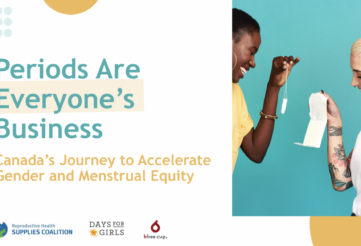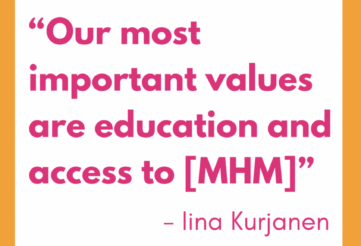Can Menstrual Pads Fix Prejudice?

We submitted this letter to The New York Times in response to an opinion piece that ran in its Sunday Review section on April 1.
TO THE EDITOR:
In “Menstrual Pads Can’t Fix Prejudice,” by Chris Bobel (Sunday Review, April 1), the author is correct that handing out pads or making them more affordable is an incomplete solution. But her concerns that menstrual activism will be reduced to “better living through consumption” underestimates the benefits of consumption: more access to safe, reliable products leads to more girls staying in school, greater economic growth, and healthier families and communities.
Prof. Bobel also glosses over significant efforts to fight menstrual stigmas, in conjunction with distributing or selling products. From Guatemala to Nepal, health education is a vital component of our work at Days for Girls International; we also partner with other NGOs on related issues, including water and sanitation. And we applaud the business sector’s myth-busting initiatives, such as India’s “Touch the Pickle” campaign by Whisper (a sanitary napkin brand from Proctor & Gamble), which tackled taboos against handling food during your period.
In less than a decade, Days for Girls alone has mobilized tens of thousands of volunteers and social entrepreneurs, reaching more than one million women and girls around the world. Rest assured, menstrual activism is already more than a moment — it’s truly a movement.
__
Celeste Mergens
Bellingham, Washington
The author is founder and CEO of Days for Girls International, a global health organization focused on menstrual health and education.









